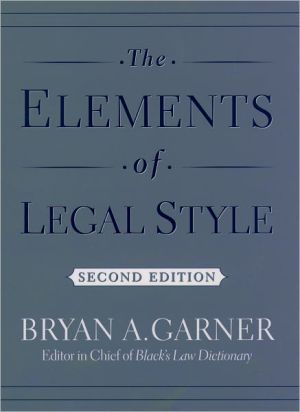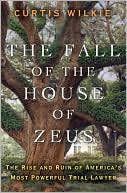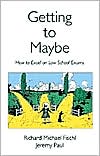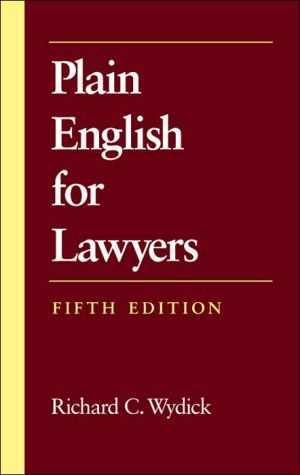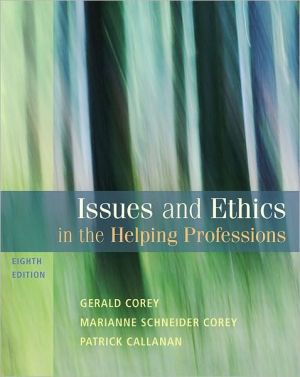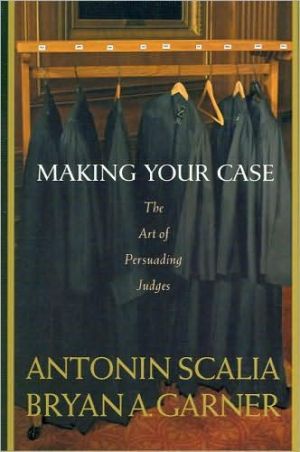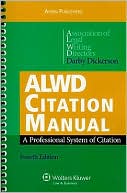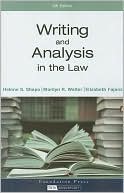The Elements of Legal Style
With expanded coverage in this new edition, The Elements of Legal Style features additional sections, many more examples, and a thoroughly researched appendix that contains 80 major statements on prose style--what it is and how to attain it.\ Inspired by Strunk and White's The Elements of Style, this book clearly (often wittily) explains the full range of what legal writers need to know: mechanics, word choice, structure, and rhetoric, as well as all the special conventions that legal...
Search in google:
When Bryan A. Garner's award-winning Dictionary of Modern Legal Usage appeared in 1987, it was widely acclaimed throughout the English-speaking world. Just in the U.S., Harvard Law Review called it "an authoritative guide" that "all legal writers will find...invaluable." ABA Journal hailed it as "a work of learning, taste, care, and wit"; and the Michigan Bar Journal called it "a landmark reference." Garner modeled that volume after Fowler's venerable Dictionary of Modern English Usage. Now he has written a new writing guide, this one inspired by Strunk & White's classic book, The Elements of Style. Like the Strunk & White book, The Elements of Legal Style offers authoritative, down-to-earth, and often witty advice on a broad array of writing concerns, from basic grammatical rules to enhancing clarity, force, and persuasiveness. Unlike Strunk & White, it is written for lawyers, law students, judges and their law clerks—for anyone who writes in and about the law. With broad experience as a practitioner, academic, and writing consultant, Garner knows first hand where legal writing goes wrong, and he pays particular attention to these trouble spots. He not only reveals how and why lawyers spill their words vervbosely, he also memorably shows how lawyers can clean up their spills. In a section on commonly misused words in law, Garner crisply guides readers through the hazards of legal wordchoice. Throughout the book, Garner draws on splendid and not-so-splendid examples of legal prose to illustrate his points, quoting such eminenences as Justice Holmes, Clarence Darrow, William Prosser, Fred Rodell, Ronald Dworkin, Laurence H. Tribe, and Justice Scalia. Fred Rodell, the Yale law professor, once wrote that "90 per cent of American scholars and at least 99.44 per cent of American legal scholars not only do not know how to write simply; they do not know how to write." Rodell exaggerated for comic effect, of course, but legal writing certainly needs improvement. In The Elements of Legal Style, Bryan Garner shows the way. Library Journal A decade after the key first edition, Garner, editor in chief of Black's Law Dictionary and other works on legal writing, provides expanded coverage of appropriate legal prose and common errors in legal language, with the goal of encouraging clarity in legal writing. Throughout, he emphasizes fundamental rules of usage and fundamental principles of legal writing that range from punctuation, word choice, and syntactic arrangement to various forms of repetition. Suggestions regarding word choice give a good indication of his approach: he guides writers to strike out and replace fancy words, challenge vague words, and eschew euphemisms. In the foreword, Charles Alan Wright accurately comments that for lawyers "words are the only things we have to work with." Indeed, this book speaks not only to lawyers but to other writers as well, urging them to use style to develop persuasion, description, or analysis. Highly recommended for academic and larger public libraries. Steven Puro, St. Louis Univ. Copyright 2002 Cahners Business Information.
AcknowledgmentsForeword1The Letters of the Law12Fundamental Rules of Usage15Punctuation15Word Choice29Grammar and Syntax403Fundamental Principles of Legal Writing534Some Matters of Form755Words and Expressions Confused and Misused996Rhetorical Figures in Law149Comparison150Wordplay154Syntactic Arrangement160Repetition1687An Approach to Legal Style177Being Yourself177Exposition and Argument181Speaking Legally191Expressive Tactics1988A Parting Word221AppEighty Classic Statements About Style223Index241
\ From Barnes & NoblePerhaps the most prominent proponent of good legal writing, Bryan Garner's style guide is patterned after the classic Elements of Style but with an emphasis on the special difficulties of writing about legal matters. With his own no-nonsense sensibility, Garner will show you how to write with more clarity and forcefulness and get your points across with panache.\ \ \ \ \ From the Publisher"Publishers each year spew out writing books for law students by the dozen. Forget them. This is the best. We had not believed that this classic work could be substantially improved. The inimitable Mr. Garner has proven this belief wrong, and happily so."-ABA Appellate Practice Journal\ "Garner has given to the legal profession [an] extraordinary book....Invaluable."--South Dakota Law Review\ "Bryan Garner...is rapidly becoming--if he's not there already--America's foremost authority on language and the law."--Barrister\ "An expanded and more relaxed edition of his 1991 sourcebook."--William Safire, New York Times Magazine\ \ \ \ Library JournalA decade after the key first edition, Garner, editor in chief of Black's Law Dictionary and other works on legal writing, provides expanded coverage of appropriate legal prose and common errors in legal language, with the goal of encouraging clarity in legal writing. Throughout, he emphasizes fundamental rules of usage and fundamental principles of legal writing that range from punctuation, word choice, and syntactic arrangement to various forms of repetition. Suggestions regarding word choice give a good indication of his approach: he guides writers to strike out and replace fancy words, challenge vague words, and eschew euphemisms. In the foreword, Charles Alan Wright accurately comments that for lawyers "words are the only things we have to work with." Indeed, this book speaks not only to lawyers but to other writers as well, urging them to use style to develop persuasion, description, or analysis. Highly recommended for academic and larger public libraries. Steven Puro, St. Louis Univ. Copyright 2002 Cahners Business Information.\ \
